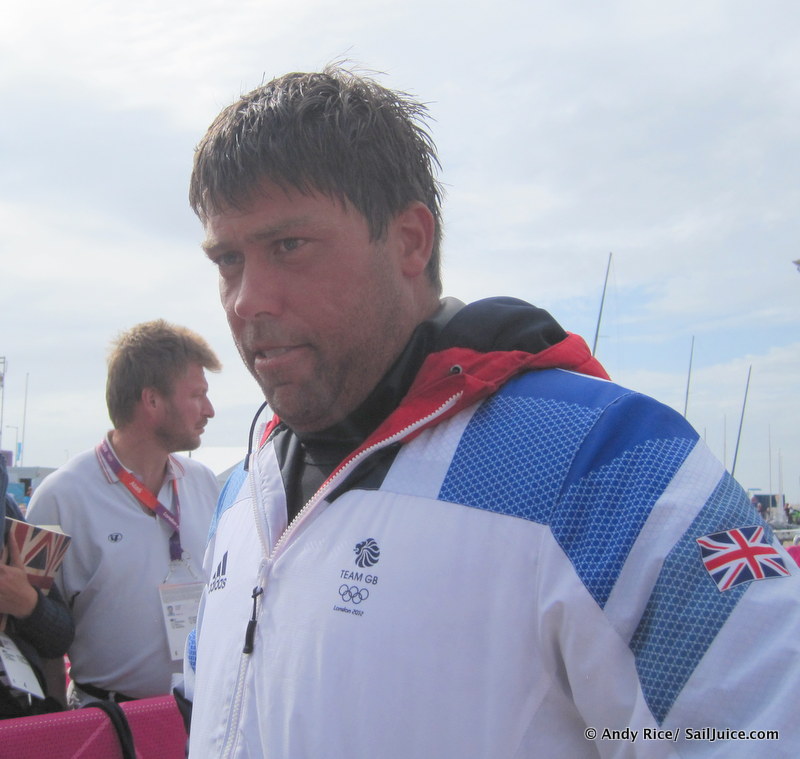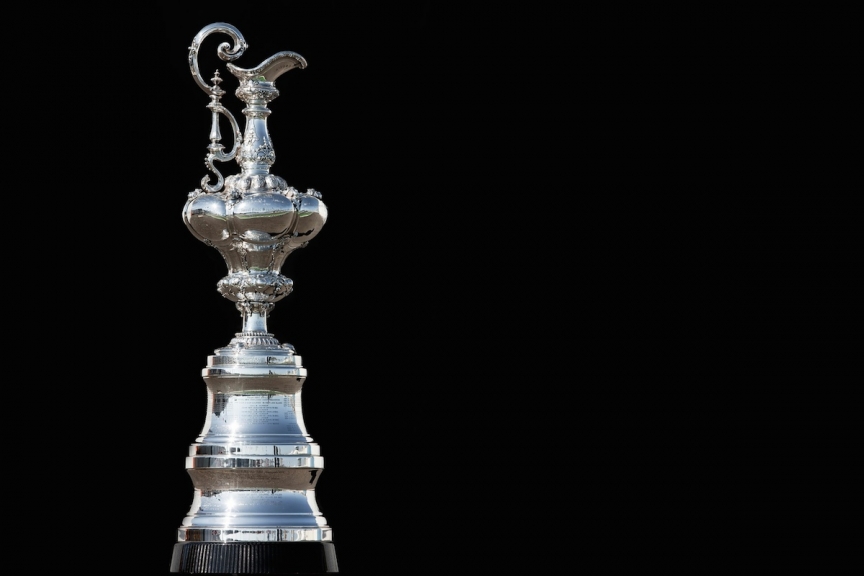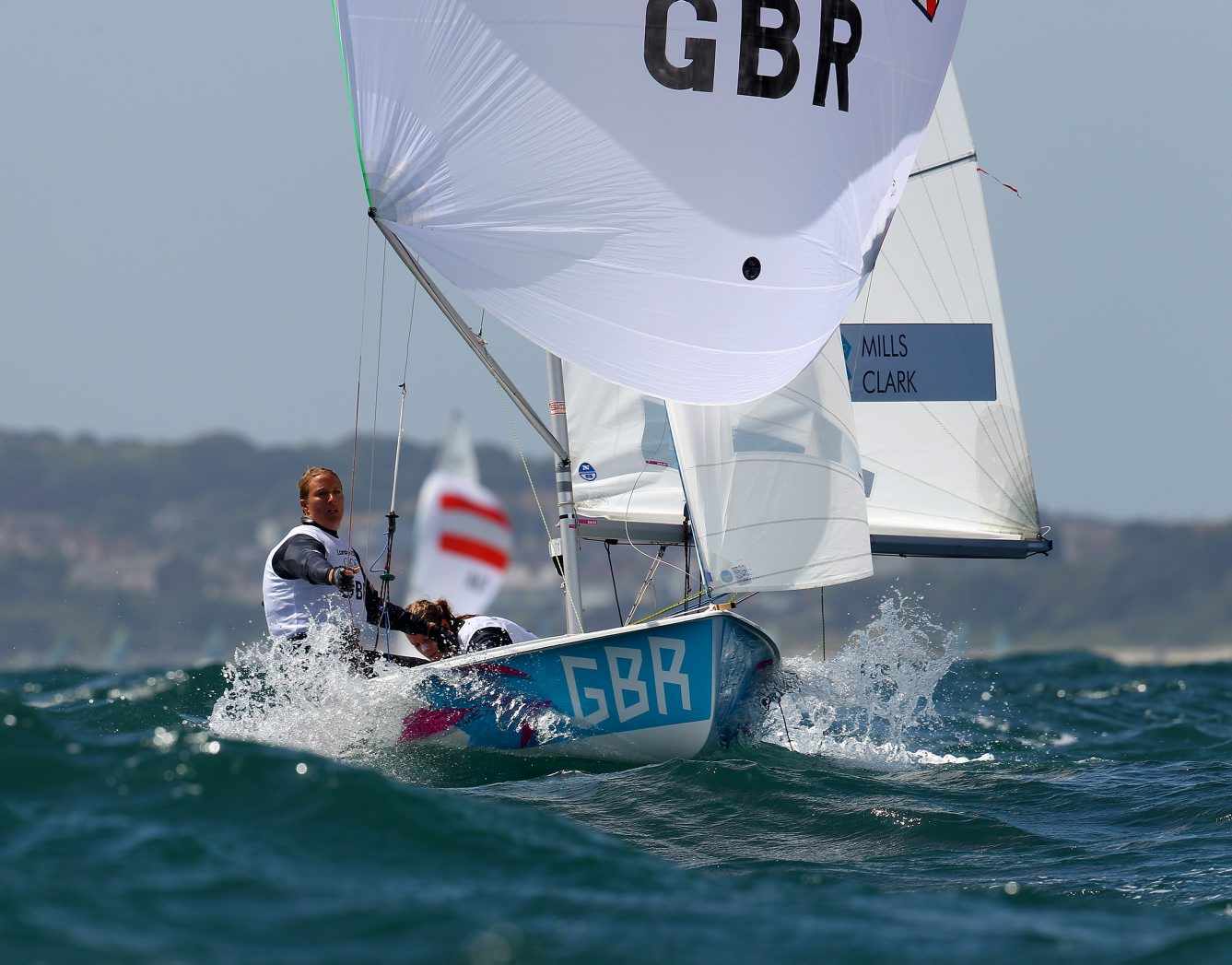Great sailors - born or made? The same is asked of any number of successful people in other walks of life. So what’s the answer? No one can really say, but my observations from Olympic level sailing suggest that talent is what gets you noticed, but it’s hard work and practice that really makes the difference at the top level.
Before the British Olympic squad turned into the lean professional fighting machine that it has become today, people went Olympic sailing because they’d had some success in other classes and fancied trying their hand at the toughest end of the sport. It was interesting to see how some of the really successful sailors at national level, with multiple titles to their name, failed to cut it at Olympic level. Sometimes it was the lesser known sailors who plugged away for longer and eventually made a breakthrough to the top level. Maybe because it hadn’t come so easy at national level sailing, they had higher reserves of patience and fortitude for the tough times that inevitably come with Olympic campaigning.
I saw this at first hand when I got a call from a multiple world champion to crew for him in a 470 regatta. It wouldn’t be fair to mention his name, but he was a legend in his ‘other’ class, and I expected him to display similar talent in the 470. To some extent, he did, when we had space around us to put our heads down and sail. But in tight tactical situations he got into a mess. Thinking about it afterwards, the reason was simple enough. He was so fast in the ‘other’ class, he probably didn’t need to be too good at the tight boat-on-boat tactics. He always had the space to put his head down and just sail fast.
When you look at Ben Ainslie and what he is capable of, it’s easy to believe that ‘that’s just talent’. If you ever put that to Ben, it’s one of the quickest ways to wind him up! The fact is, he’s always been one of the first down to the boat park in the morning, and he puts more time in the gym than nearly anyone else. Whatever needs to be done, Ben does more of it, and with more intensity and commitment.
Another five-time Olympic medallist, Robert Scheidt, surely has talent in abundance. But after spending some time training with Robert, our own Andrew ‘Bart’ Simpson said the thing that really stood out to him was the Brazilian’s high work ethic. Just sheer, long hours on the water, tweaking, honing and perfecting. Despite now approaching 40 years old, Robert has kept himself in peak physical condition.
Popular author Malcolm Gladwell has written a bestselling book on this subject called Outliers: The Story of Success, which lays out the premise that you need to have done 10,000 hours of practising the thing that you want to excel in - whether it be playing the violin to concert hall standard, kicking a rugby ball with the metronomic precision of Jonny Wilkinson, or sailing a Finn to the same high standard as Ben Ainslie. It’s an interesting read, although I don’t think it does quite tell the whole story. After all, Ben had already reached a world-class level in the Laser at the age of 18 when he had been sailing for just less than 10 years in total. It’s not just the hours that you put in, it’s what you do with those hours, the intelligence and intensity that you apply to your training time.
Talent v hard work: the thing that prompted me to start considering this old chestnut again was on a recent visit to Oman in the Middle East to do some work for Oman Sail. The scale of this organisation and its ambitions are almost beyond belief. At the top level of the sport, you might already be aware of Oman Sail’s teams competing around the world. Oman Sail has a boat competing on the MOD 70 trimaran racing circuit, and in the Extreme Sailing Series the team’s boats - The Wave, Muscat skippered by Leigh McMillan and Oman Air by Morgan Larson - claimed the top two places on last year’s circuit ahead of some of the best multihull sailors around, including double Olympic Champion Roman Hagara for example.
The Omani sailors competing on the world stage are becoming the role models for an even more ambitious programme back in Oman, to introduce 70,000 children to the sport of sailing. Already 10,000 have been through the programme, and with a further 60,000 due to go through Oman Sail’s sailing schools in the next four years. This organisation has grown from a standing start to employing about 150 people today, all headed up by a British expat, David Graham, who used to run Laser Performance in this country. Indeed, there are many Brits in key roles there, including an old friend of mine from Laser sailing days, Neil Coxon who is now director of training for the organisation.
The ultimate aim of putting these 70,000 kids through a sailing programme is to equip them with useful life skills that we all learn from sailing - self-reliance, patience, resilience and so on. That in itself is a remarkable aim and perhaps the most significant of all. But the measurable aim of success will be whether the very best of the Omani sailors can qualify for the Olympics in 2020 and go on to win the nation’s first ever Olympic medal in 2024. As far as Neil is concerned, it’s not about finding the most talented individuals. As an organisation Oman Sail has dismissed the notion of talent. The only attributes they are looking for in young Omanis are the ones that relate to sheer hard work and commitment to practice, practice, practice.
Roll Tacks - February 2013
Related Articles

Roll Tacks - January 2014
About a year ago I used this column to put out a madcapped theory about holding a virtual Sunday morning race. “Pretty much every club in the country has a race on a Sunday morning, with all kinds of boat taking part. Race results are captured electronically on software packages such as Sailwave and Excel. So why can’t the results from different sailing clubs be mashed together to create one big nationwide race on a Sunday morning? A weekly handicap racing championship!”
Read More

Ben Ainslie & Iain Percy remember their friend Andrew 'Bart' Simpson
 Speaking at Weymouth in May 2014, Iain Percy and Sir Ben Ainslie remember their great friend, Bart Simpson, as they launch the Andrew Simpson Sailing Foundation and its first school at the venue of London 2012, where Bart won the second of his two Olympic medals....
Speaking at Weymouth in May 2014, Iain Percy and Sir Ben Ainslie remember their great friend, Bart Simpson, as they launch the Andrew Simpson Sailing Foundation and its first school at the venue of London 2012, where Bart won the second of his two Olympic medals....
Read More

America's Cup - December 2013
 Why bother match racing at 4 knots when the America’s Cup demands you race at 40? I asked the Italians from Luna Rossa this question at the Monsoon Cup in Malaysia. Meanwhile, what to make of Iain Murray’s job change, from gamekeeper to poacher? And which other big-name Australians will follow the ‘Big Fella’ to Hamilton Island?
Why bother match racing at 4 knots when the America’s Cup demands you race at 40? I asked the Italians from Luna Rossa this question at the Monsoon Cup in Malaysia. Meanwhile, what to make of Iain Murray’s job change, from gamekeeper to poacher? And which other big-name Australians will follow the ‘Big Fella’ to Hamilton Island?
Read More
 Why bother match racing at 4 knots when the America’s Cup demands you race at 40? I asked the Italians from Luna Rossa this question at the Monsoon Cup in Malaysia. Meanwhile, what to make of Iain Murray’s job change, from gamekeeper to poacher? And which other big-name Australians will follow the ‘Big Fella’ to Hamilton Island?
Why bother match racing at 4 knots when the America’s Cup demands you race at 40? I asked the Italians from Luna Rossa this question at the Monsoon Cup in Malaysia. Meanwhile, what to make of Iain Murray’s job change, from gamekeeper to poacher? And which other big-name Australians will follow the ‘Big Fella’ to Hamilton Island? 
Roll Tacks - June 2013
Great to see Luke Patience and Stu Bithell throwing themselves into the Wilson Trophy, the sort of unofficial world championship of team racing. We don’t often see the Olympic stars get involved in the nitty gritty of the amateur dinghy racing scene, and who can blame them? Must be a bit of a busman’s holiday, going sailing in your spare time. So it’s nice to see it when it does happen, like Paul Goodison and Saskia Clark doing a bit of Essex dinghy racing last summer just weeks after London 2012, and now Luke and Stu getting stuck into team racing.
Read More

Saskia Clark One Year On: Back from a break and revved up for Rio
Read More
 In our penultimate #2012inspired blog, West Mersea’s Saskia Clark looks back on her Games experiences, having won 470 class silver with Hannah Mills after just an 18-month campaign together. Clark and Mills took time out of the sport after London, but have returned to the 470 this month ahead of the 470 World Championships in La Rochelle next month
In our penultimate #2012inspired blog, West Mersea’s Saskia Clark looks back on her Games experiences, having won 470 class silver with Hannah Mills after just an 18-month campaign together. Clark and Mills took time out of the sport after London, but have returned to the 470 this month ahead of the 470 World Championships in La Rochelle next month
